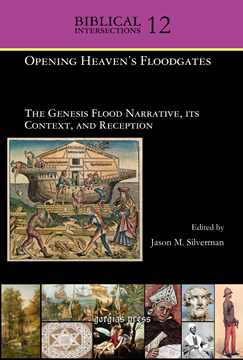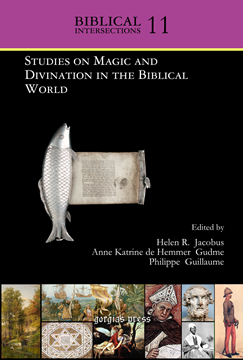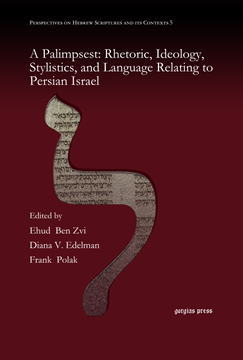Philippe Guillaume
Opening Heaven's Floodgates
The Genesis Flood Narrative, its Context, and Reception
Edited by Jason M. Silverman
Series: Biblical Intersections 12
ISBN: 978-1-61143-894-9
The narrative of Noah’s flood in Genesis draws perennial interest from scholars and the general public. Too often, however, historical and exegetical studies of the text, the story’s reception, and discussion of theological appropriation remain aloof from each other, if not at odds. This volume takes the influential nature of the flood story as an ideal opportunity to bring some of these methods into dialogue.
$218.00 (USD) $130.80 (USD)
Studies on Magic and Divination in the Biblical World
Series: Biblical Intersections 11
ISBN: 978-1-61143-869-7
A selection of essays on magic and divination in relation to the biblical world, including Mesopotamian demonology, Akkadian literary influences, exorcism, healing, calendars, astrology, bibliomancy, dreams, ritual magic, priestly divination, prophecy, magic in the Christian Apocrypha and the New Testament, magic in rabbinic literature, and Jewish Aramaic magic bowls.
$165.00 (USD) $99.00 (USD)
Studies on Magic and Divination in the Biblical World
Series: Biblical Intersections 11
ISBN: 978-1-61143-869-7
A selection of essays on magic and divination in relation to the biblical world, including Mesopotamian demonology, Akkadian literary influences, exorcism, healing, calendars, astrology, bibliomancy, dreams, ritual magic, priestly divination, prophecy, magic in the Christian Apocrypha and the New Testament, magic in rabbinic literature, and Jewish Aramaic magic bowls.
$165.00 (USD) $99.00 (USD)
Rhetoric, Ideology, Stylistics, and Language Relating to Persian Israel
ISBN: 978-1-60724-584-1
A volume of collected essays that explores what we can learn about the producers and readers of biblical books by looking into matters of language, rhetoric, style, and ideology. What do they teach us about these literati’s world of knowledge and imagination, about the issues they had in mind and the ways they came to deal with them through authoritative literature? The book includes essays on such issues as whether linguistic theories can solve literary-critical problems, on what is “late biblical Hebrew,” on parallelism and noun groups in biblical poetry, and the communicative meaning of some linguistic choices.
$197.00 (USD) $118.20 (USD)



